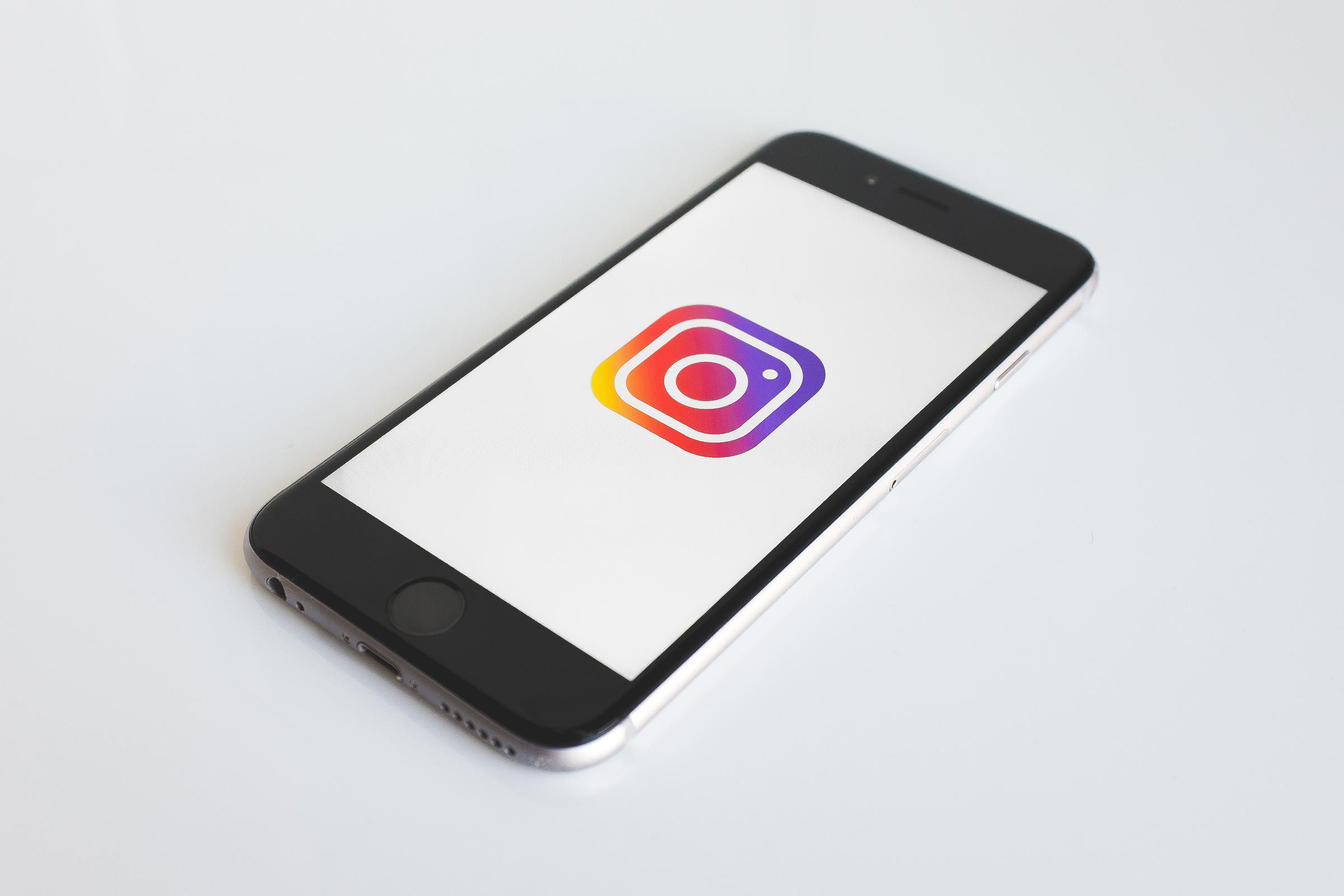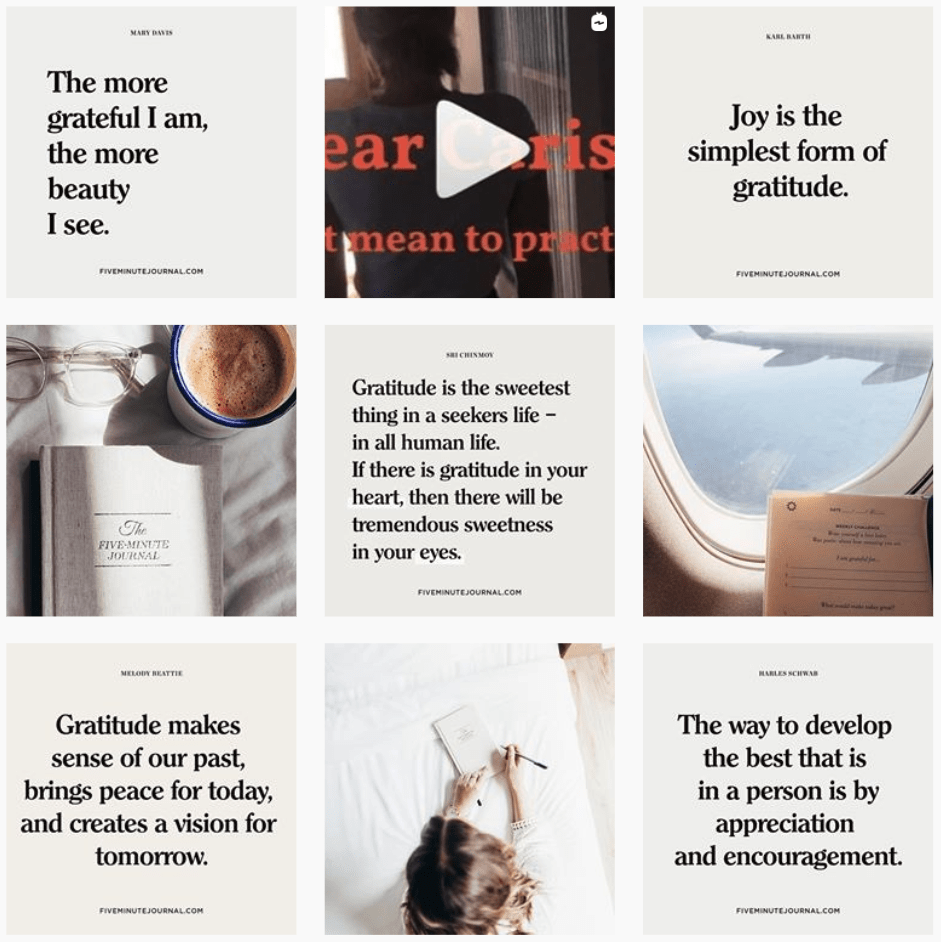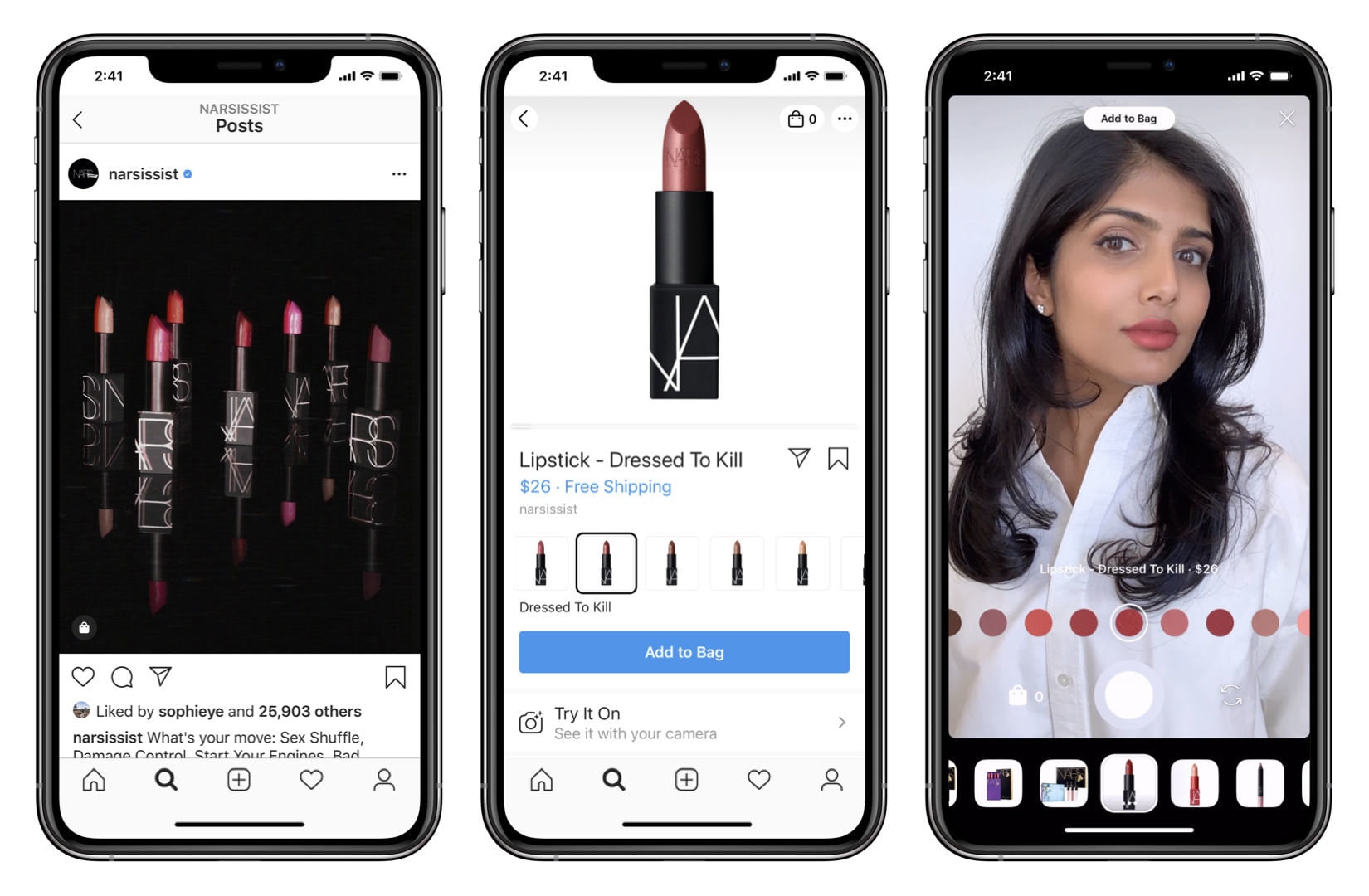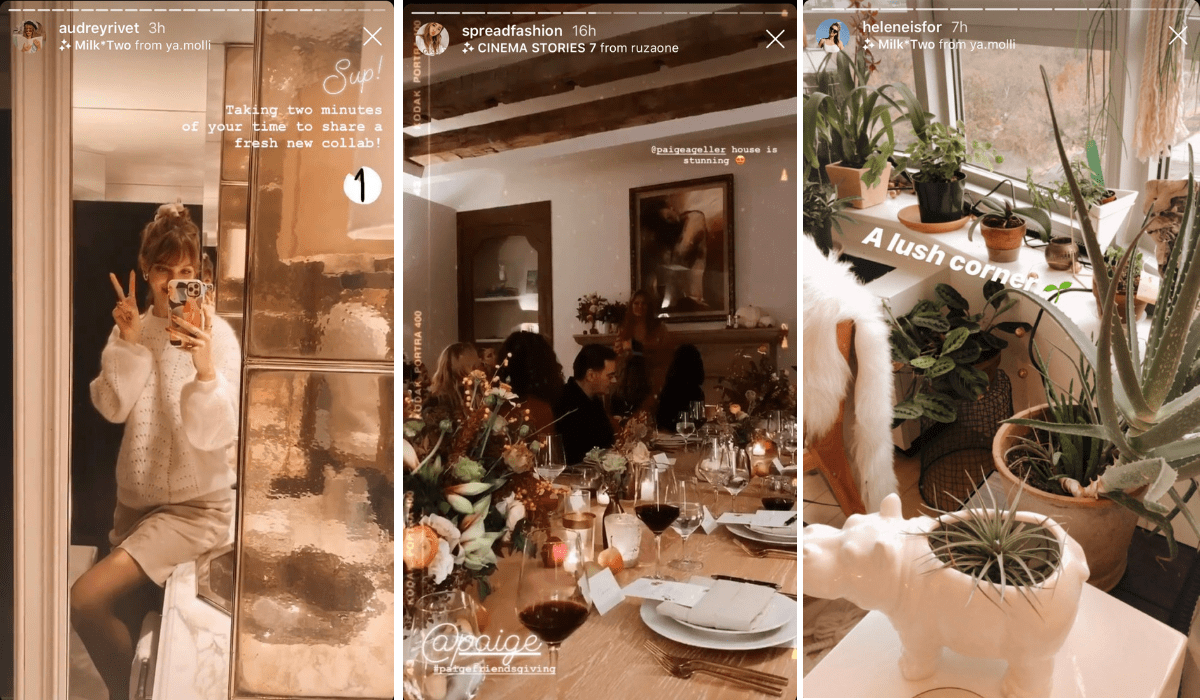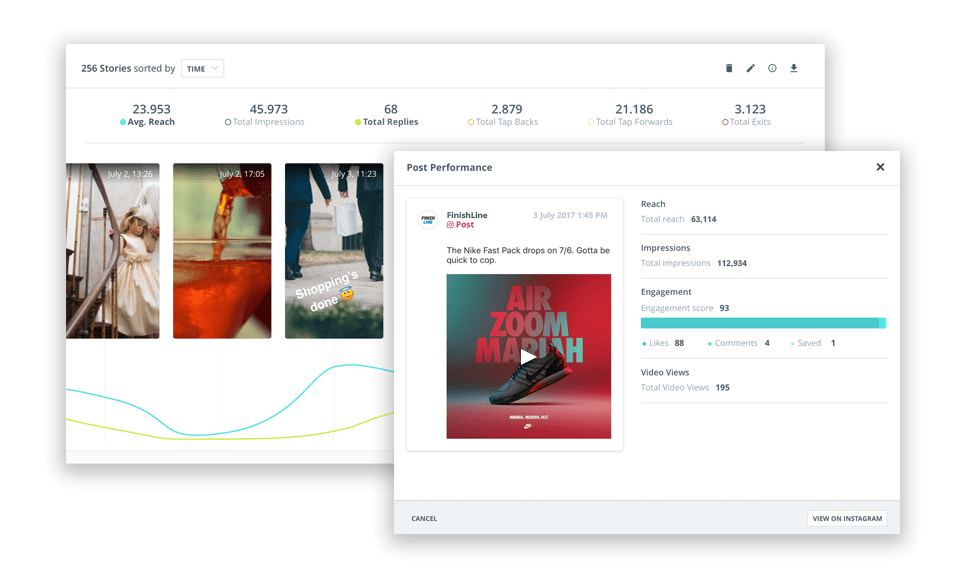or now, Instagram remains the sweetheart of the social media scene for marketers. And it’s not hard to see why, since 13% of everyone on Earth is on it, and 80% of them follow brands.
According to Forrester, engagement – measured by likes, shares and comments from consumers – is also off the chart, boasting a rate of 4.21%. That’s 10 times higher than Facebook, 54 times higher than Pinterest, and 84 times higher than Twitter.
But apart from such impressive topline figures, challenges are emerging that point to Instagram’s marketing potential dimming because of reduced engagement rates and competition from new challengers, such as TikTok.
Against this backdrop, proactive marketers are seeking ways to increase Instagram engagement despite some setbacks. That’s why we have put together these 23 tips to ensure your paid and organic marketing campaigns continue to hit their mark – and to safeguard your Instagram marketing tactics now and in the future. Let’s dive in.
- Post consistently
- Don’t preach—tell stories instead
- Build a strong brand
- Have a visually consistent feed
- Choose the right hashtags
- Create a branded hashtag
- Focus on user-generated content
- Explore the full range of Instagram video formats
- Use Instagram video subtitles and closed captions
- Embrace Instagram AR filters
- Take advantage of Instagram’s video ad formats
- Give Gifs a chance
- Use Instagram traffic to increase website traffic
- Use SEO to ‘win’ Instagram
- Partner with micro-influencers to create brand authenticity
- Host an Instagram contest
- Convert Instagram followers into email subscribers
- Embrace Instagram Stories
- Add a link to Instagram Stories
- Use emojis effectively
- Promote your Instagram channel on other social accounts
- Add CTAs, everywhere
- Track and learn from your best-performing Instagram content
1. Post consistently
Brands need to be active in order to attract followers and boost engagement rates – but how active?
According to studies, the sweet spot is a consistent 1-2 posts a day. This way your feed stays fresh and relevant, and you have more opportunities to attract eyeballs to your content. Knowing when the best time to post on Instagram is is also critical especially when dealing with Instagram’s algorithmic timeline.
Recommended post times can vary wildly depending on which expert you listen to. With some advocating 8 AM – 9 AM or 2 PM – 5 PM for your first post to even 5 AM for your second, this inconsistency can create genuine confusion for content planners.
Just look at FashionNova and National Geographic. FashionNova, a global online fashion retailer, posts on average 30 times per day—that’s about one post every 30 minutes! This might sound like an overkill, but the brand’s 17.3M followers don’t seem to think so. With this many followers, the engagement rate is 0.07%.
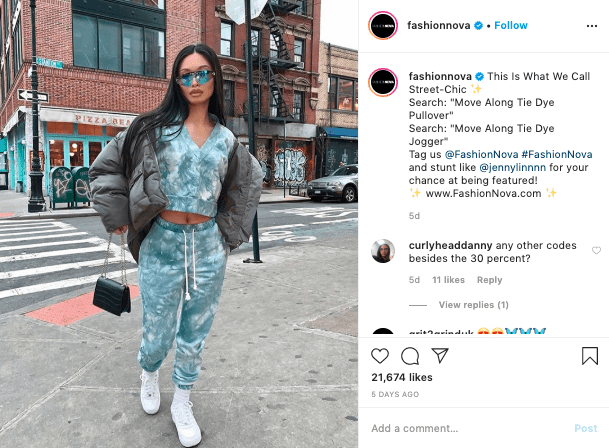
Posting up to 30 times per day has ensured that the target audience sees at least a few of Fashion Nova’s posts every day. | Source: Instagram/FashionNova
National Geographic, on the other hand, relies on a much more conventional strategy: the brand posts up to 5-7 times per day. With 135M followers, their engagement rate of 0.24% is a big success.

Source: Instagram/National Geographic
The takeaway? Two wildly successful brands, two very different strategies.
So, there’s no magic bullet for the best time or amount to post on Instagram.
What you should do is uncover your own followers’ Instagram habits by using the Insights feature of your Instagram Business or Creator account.
This helps you identify when your followers are most active and allows you to schedule accordingly, ensuring your posts continue to appear at the top of their feeds.
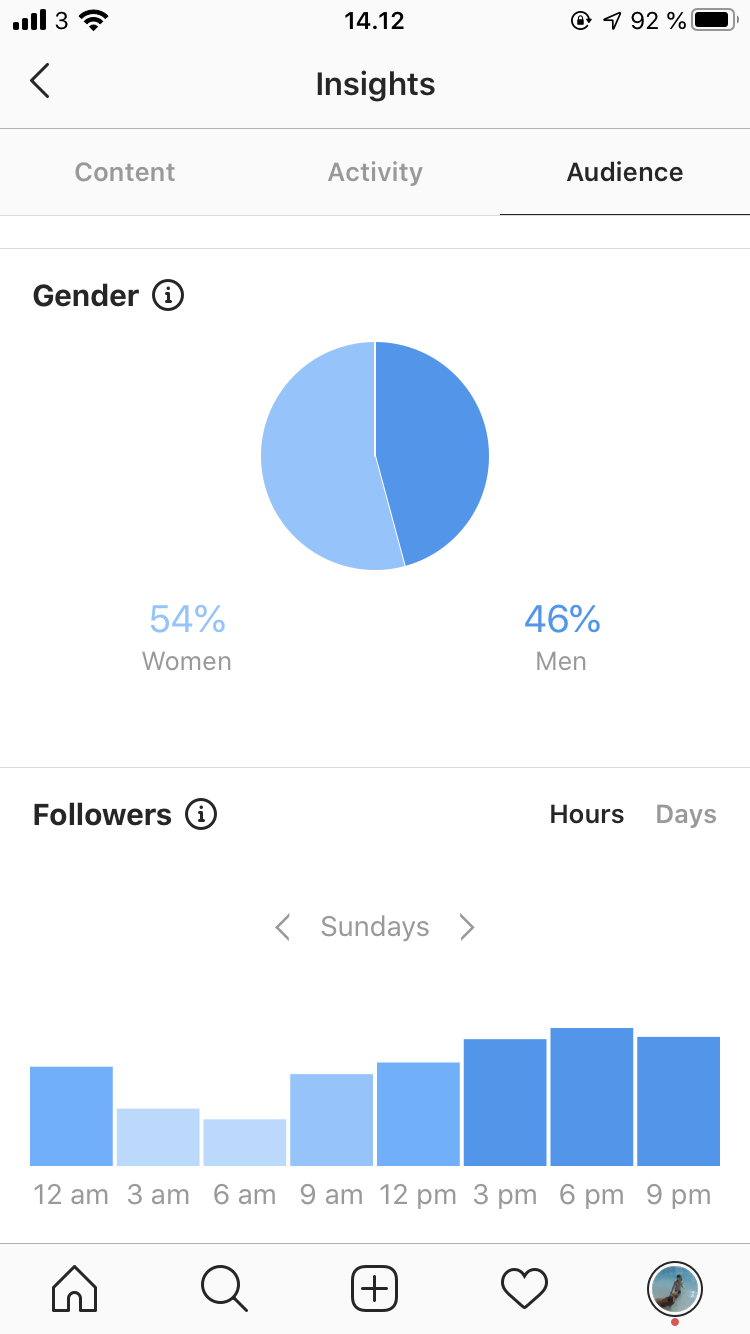
Use Instagram’s native analytics tool to see what times and days your followers are most active, and more.
For an extra helping hand, consider using a tool like Falcon’s Instagram Publishing and Measurement to hone your content delivery strategy further.
2. Don’t preach – tell stories instead
Instagram is awash with mediocre brand messaging that forgets the social network is supposed to be a ‘visual inspiration platform’.
You should captivate audiences through images, video, and text, not simply preach marketing missives at them.
To increase engagement rates, become a storyteller instead, offering ‘micro-stories’ via your captions, videos, Instagram stories and profile.
People today crave connection, and storytelling is a way to create this experience. When people feel an emotional connection to your content, they are much more likely to buy into it and share it with their peers.
For inspiration, follow innovative Instagram storytellers such as Airbnb, Red Bull, Lego, Patagonia, and Nike. You can also view these examples to help kickstart your creativity.
One way to insert elements of storytelling into your Instagram strategy is by sharing user-generated content that resonates with your brand. Another way is to focus on telling a story with your captions.
Longer captions with elements of storytelling and authenticity are particularly powerful because they enable brands to appear more human and build deeper connections with their target audience. Done right, wordy captions also stop scrollers in their tracks and increase the time they spend looking at your post.
Long captions have become a bit of a trend recently, first adopted by influencers who use Instagram captions like micro-blogs.
According to Instagram influencer Christina Galbato, who has worked with brands like Revolve, the Four Seasons and Olay, “micro-blogging captions are great because they’re very engaging, help you in the algorithm and encourage saves & shares”.
In addition to being a trend, long captions are a part of a larger shift towards authenticity, and bring added credibility to a platform long criticized for being too superficial.
Brands are slowly picking up on this shift.
Take Patagonia as an example. The sustainable outerwear brand is a master of storytelling, its account teeming with content about the environment, nature and outdoor sports.
In this example, Patagonia opted for an insightful caption about the protection of indigenous areas in Canada.
Airbnb is another example of great storytelling. The brand uses Stories to showcase interesting hosts, experiences and locations.
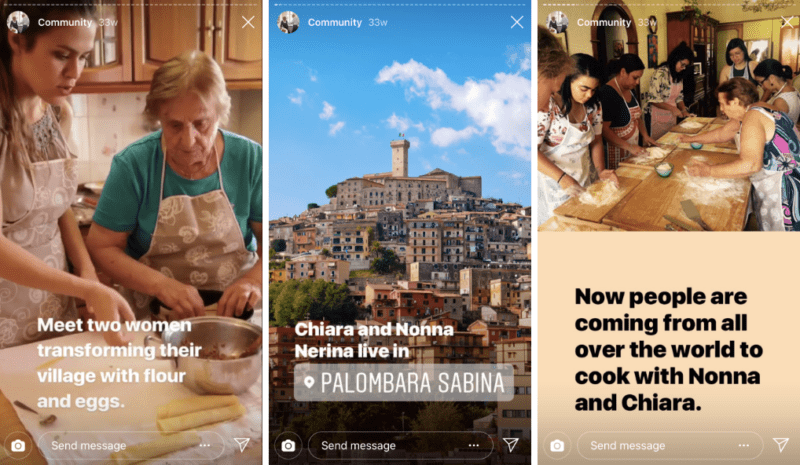
Source: Instagram/Airbnb
The lesson? Don’t just post product pictures and sales pitches—provide content that aligns with what your audience cares about or help them with their problems. Do it well by embracing different content formats, such as stories, IGTV, videos, photos, and captions.
3. Build a strong brand
Clarity, creativity and consistency are king for enterprises aiming to build brand awareness on Instagram. An erratic, haphazard approach just doesn’t work.
Try to focus on core areas like presenting your profile, creating style patterns that keep your images looking fresh, and mastering hashtag use. You should also be interacting regularly with your followers to build up engagement and loyalty.
By roadmapping your processes and brand best practices for Instagram, you can present a positive and consistent brand to your target audience.
4. Have a visually consistent Instagram feed
Instagram is a visually-driven platform that rewards aesthetically pleasing content.
Although glossy perfection is falling out of style, the heart of Instagram is visual content and that will never change.
Today, users gravitate towards authentic expression and diverse perspectives.
Visually, high-saturation filters and perfectly-positioned avocado toasts have been replaced with candid shots, muted, earthy tones and a low-key editing style.
A popular look is to reduce highlights and increase the brightness of photos, without touching the colors themselves too much, resulting in a natural look. Some people even go for a “no-edit edit”.
But more important than following any specific editing style is to have a visually consistent feed.
According to a WebDam social media report, 60% of the best-performing brands on Instagram have a consistent look every time they post.
Your look should match with your brand identity and appeal to the audience you’re trying to attract.
Take the Five Minute Journal as an example. Their feed evokes a feeling of calm, thoughtful reflection—just like their brand.
Glossier, on the other hand, is consistent and authentic by posting product photos, closeups and memes that are candid and natural. Without fancy editing and professional photoshoots, their content seems down-to-earth and approachable.
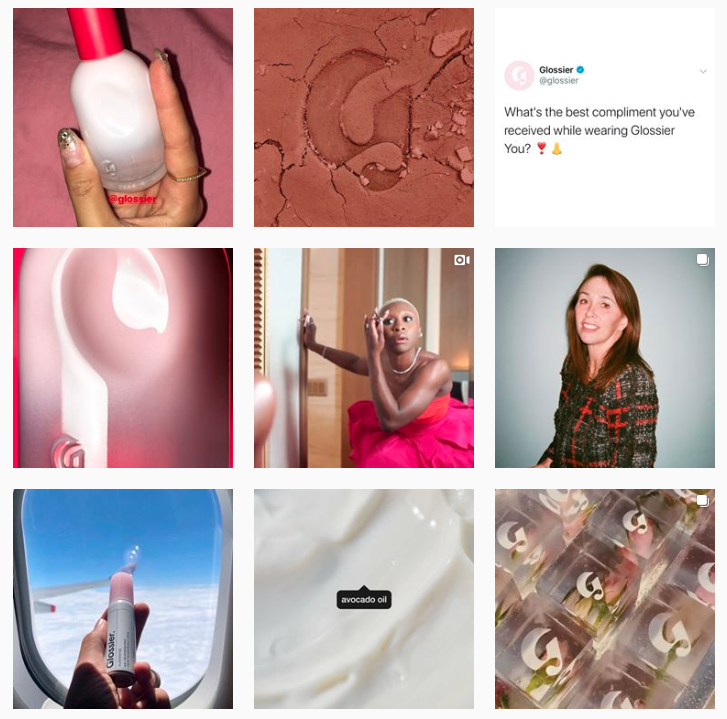
Source: Instagram/Glossier
To achieve a consistent look (whether you’re going for a polished feel or the no-edit edit), using photo editing apps like VSCO Cam and Adobe Lightroom is key. Vintage camera apps, such as Huji Cam, which purposefully add grain and dust to your photos can also give you an enviable aesthetic, popular especially with Gen Z.
5. Choose the right hashtags
Selecting the best hashtags for your Instagram posts can mean the difference between appearing as a top post or sinking to the bottom of the feed without a trace.
Make your hashtags too generic – think #christmas or #fashion – and your post will face competition from potentially millions of others. Instead, use a mix of trending and industry-specific hashtags to find the best hashtag to connect with your targeted followers.
For the best results, research each hashtag. Look at the type of content and the number of likes on its top-performing posts—if your content matches up, you’ve got yourself a winning hashtag.
The number of hashtags you deploy is also critical. While Instagram allows for up to 30, a mass of tags underneath your caption risks looking both untargeted and unprofessional. That’s why 91% of posts by top brands use seven or fewer hashtags to get many likes. According to some, posts with over 11 hashtags get the most interaction. Even one hashtag can increase engagement on your post by up to 12.6%.
To help decide which is the right number for your brand, identify how many hashtags your competitors and sector influencers typically use, then experiment with differing hashtag volumes on your posts until you find your sweet spot.
Remember that Instagram’s algorithm penalizes “spammy” behavior, so vary the number and type of hashtags you use to reduce the chances of this happening.
Likewise, make sure the hashtags you choose are truly what they seem. Some brands have ended up in embarrassing situations when they’ve innocently used hashtags that actually belonged to some of the internet’s weirder communities.
6. Create a branded hashtag
A branded hashtag is often a key part of a successful Instagram marketing strategy.
The best starting point is a general branded hashtag. It should be short, memorable and include your brand name in some form. Think #FrankEffect from Frank Body or #ColourPopMe from Colour Pop Cosmetics.
The benefits of a branded hashtag are to make your content more discoverable, drive traffic to your profile and creating a stronger community around your brand. It will also help you organize your content, making it easily findable and trackable.
Place the hashtag in your bio, so that it’s easily visible to anyone visiting your profile.
And no one says you have to have just one hashtag. You can also create hashtags for a specific campaign or competition, showcase brand advocates or encourage user-generated content.
Take the athleisure brand Athleta as an example. The brand opted for the hashtag #PowerofShe, which fits right in with its mission of empowering women.
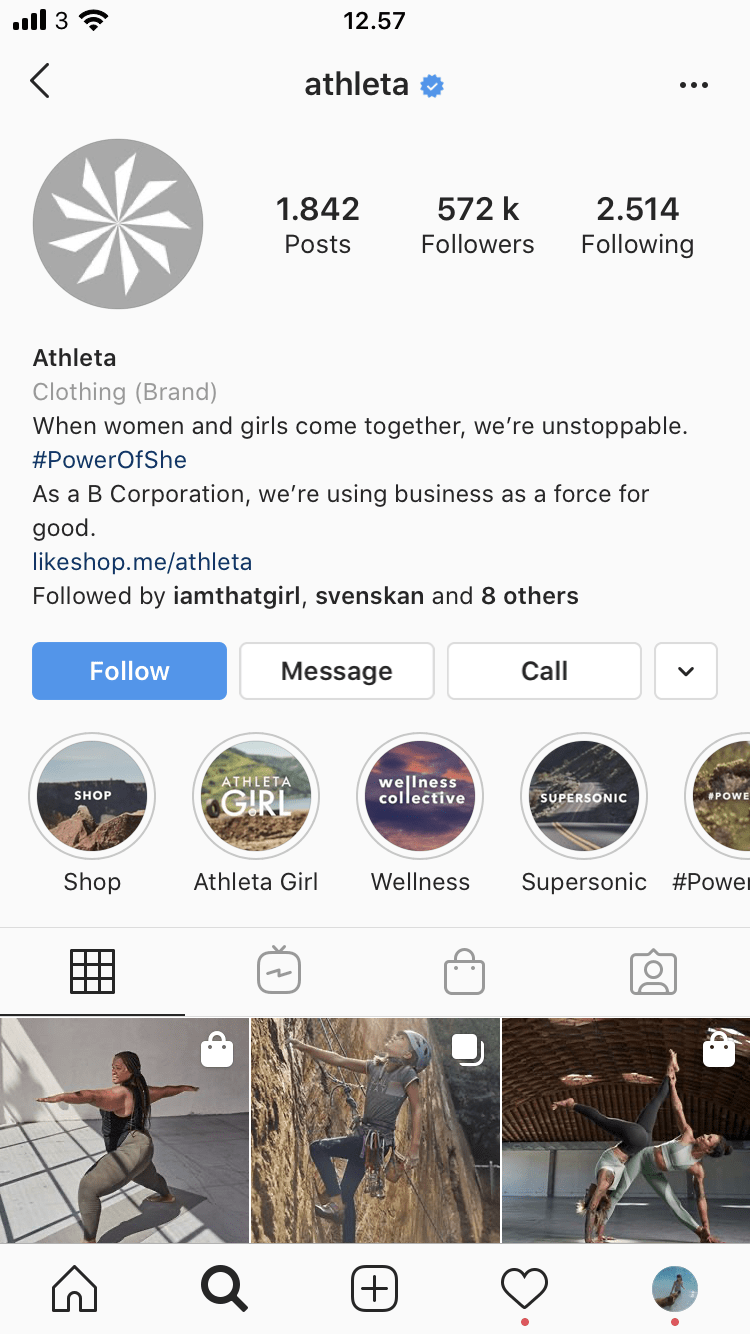
Source: Instagram/@athelta
Another example is the furniture retailer West Elm and its hashtag #mywestelm. The hashtag encourages user-generated content by promising to share the best shots.
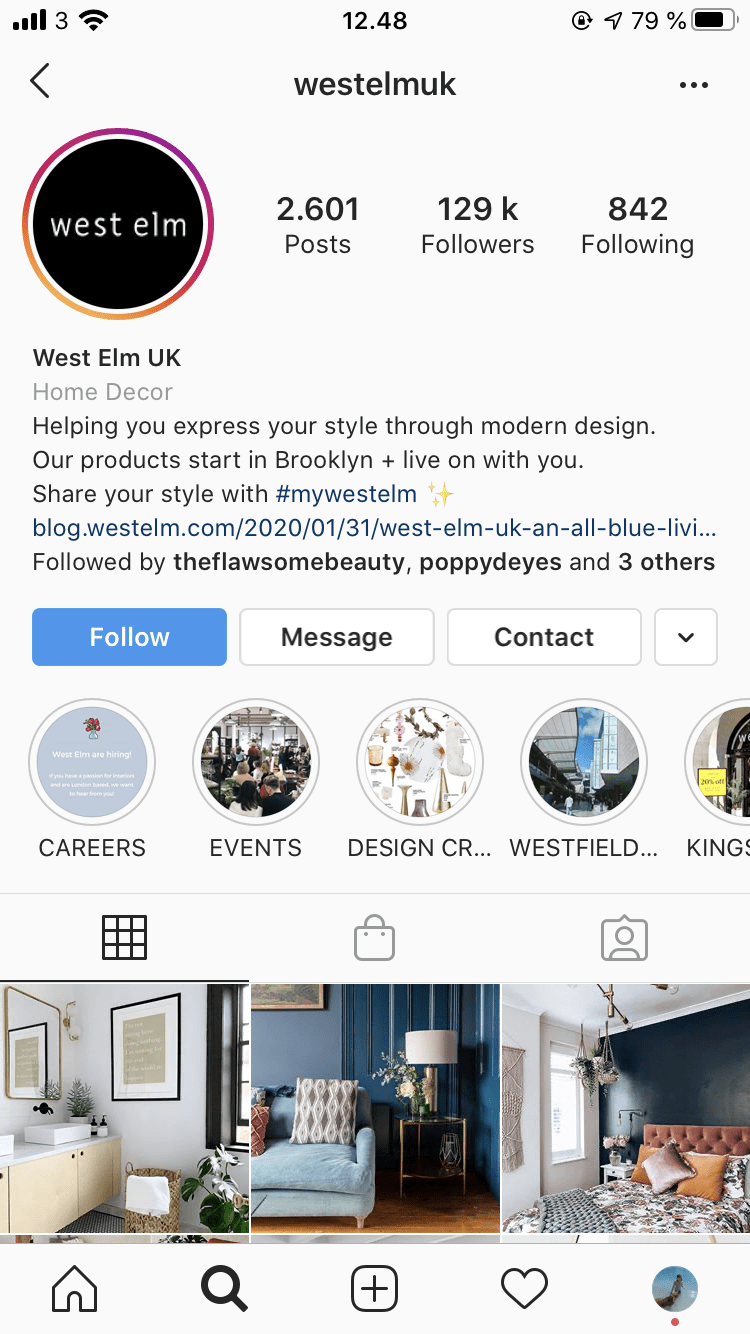
Source: Instagram/@westelmuk
7. Focus on user-generated content
User-generated content on Instagram is the holy grail for marketers. It’s a chance for followers to involve themselves more deeply with a brand while reducing marketing costs because content is being created and approved by your audience.
It’s an approach that has paid dividends for the best user-generated content campaigns. For instance, Starbucks’ #RedCupContest is a perfect example of transforming followers into brand advocates.
Launched every December, the campaign asks followers to submit creative photos of the Starbucks’ famous red Christmas cup. The hashtag has 37,000 entries to date, so it’s safe to say it’s been a success.
Virtually any industry can benefit from user-generated content. Just take a look at Santander and their ‘Prosperity’ campaign.
The campaign tapped into the emotions and humor of everyday life by soliciting short user-generated clips from followers, which were collated into a video clip about what prosperity means to its customers.
The result was a heartwarming and impactful campaign, that managed to raise the brand’s image.
8. Explore the full range of Instagram video formats
A picture may be worth a thousand words, but a video is worth 1.8 million.
While Shakespeare lovers might vehemently disagree with such a stat, there is no challenging the efficacy and popularity of online video content. Instagram recognizes this and offers a suite of video options for marketers to deploy.
From Instagram Stories that can mash up videos and stills into a single ad. to standalone 60-second videos ideal for long-form features, make sure you use the strengths of each video format.
For instance, consider Instagram stories’ live video option for a Q&A or big reveals about new products or services or use a prerecorded ad to offer up authentic, behind-the-scenes stories to your followers to increase Instagram engagement.
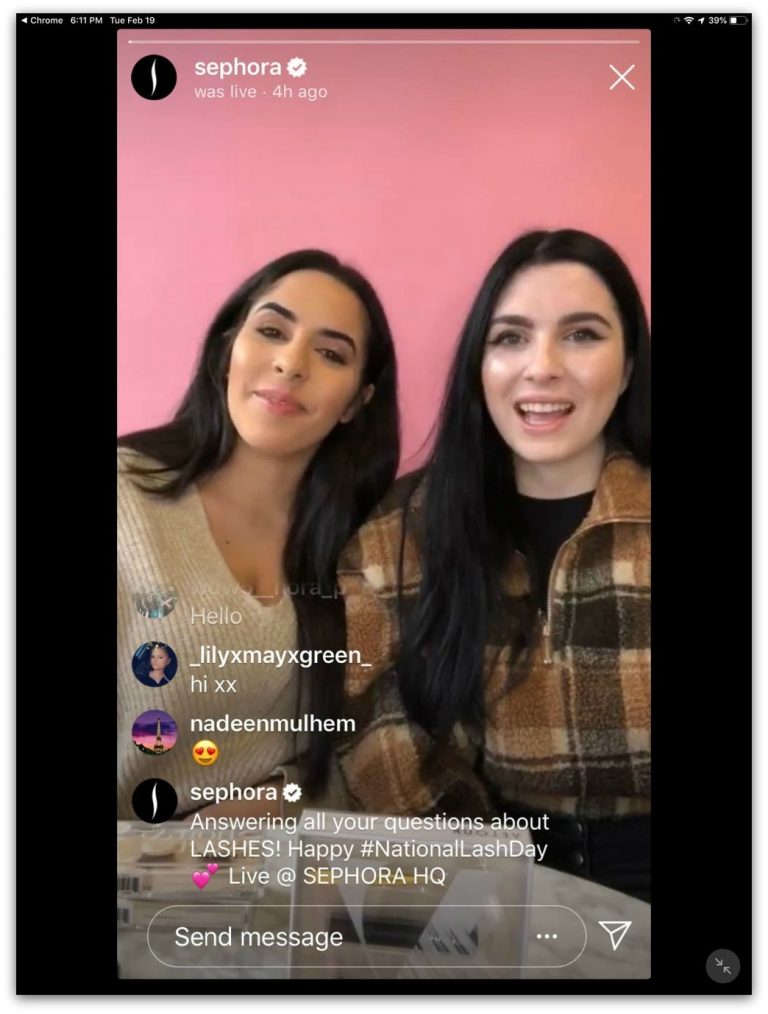
Source: Instagram/@sephora
And don’t forget about IGTV. Although some experts have proclaimed the feature dead, the diagnosis might be premature.
Originally, Instagram intended IGTV to be a destination for original long-form video content. Adoption has struggled though, with 72% of brands reporting no intention to create IGTV content in 2019.
However, this also presents an opportunity for savvy marketers. Being a first-mover on IGTV, brands will have less competition for views. Plus, they’ll be working in a unique, mobile-friendly layout that’s perfect for evergreen content, like featurettes and interviews.
Take Imperial College as an example. The London-based university uses IGTV to attract new students with relatable content, such as a video answering the question on everyone’s mind: “how much do students spend on coffee?”
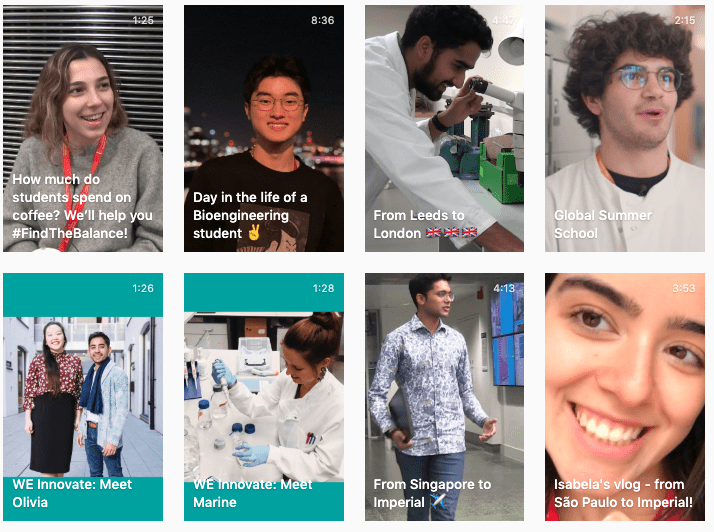
Source: Instagram/@imperialcollege
9. Use Instagram video subtitles and closed captions
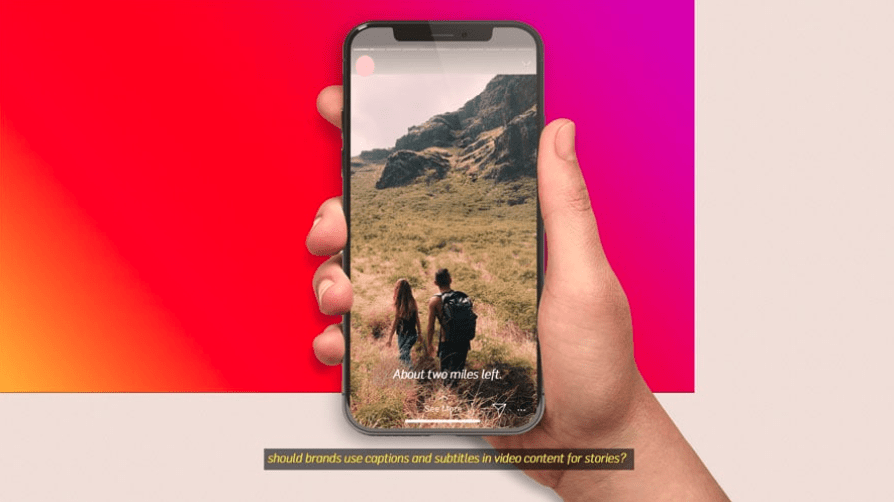
Source: Adweek
According to Instagram, 60% of stories are viewed with sound on… meaning that 40% are viewed without sound.
With video increasingly dominating the online space, audio has become a poor cousin with a significant number of users preferring not to enable sound when viewing a video. It’s why subtitles have become so essential for marketers, enabling core messaging to be delivered on-screen alongside visuals.
Research from Facebook (Instagram’s parent company), shows that captioning videos increases average video view times by 12%. Messaging effectiveness is also boosted massively, boasting a success rate of 82% compared to 18% with sound on and zero captions. Another study found that 80% of people said captions would make them more likely to watch the enitre video.
You can create an auto-captioned video on Facebook which you can save and post on Instagram (though be sure to check any captioning for errors) or, alternatively, you can create your own dedicated captioning file. To learn more about how to add closed captions, head here.
While no one can deny the attention-grabbing power of captions, they’re officially not part of Instagram’s best practices for stories.
Most stories are still watched with sound on. And, once a user enables sound, it’s on until they disable it—making it important to still invest in providing a great sound experience.
10. Embrace Instagram AR filters
Instagram opened up the creation of AR filters to the public with its Spark AR Studio last year. Since then, AR has taken the app by storm, with some of the best filters getting well over 1 billion views.
While still primarily popular among younger users, there is a growing industry around AR filters and many brands are opting for producing their own.
Just look at NARS cosmetics, who produced a bunch of filters allowing users to virtually try on their lipstick shades.
Instagram AR filters have recently evolved beyond effects that are added to your face. Now, the most popular AR filters are all about color grading and enhancing your video. So, much like you would add a filter on a photo, you can now add an AR filter to make your videos more beautiful.
As a brand, try creating AR video effects that allow your followers to experience your product or recreate your visual style.
11. Take advantage of Instagram’s video ad formats
With 75% of Instagrammers stating that they take actions “like visiting sites, searching, or telling a friend” after being influenced by a post, mastering the platform’s range of advertisement formats is essential. While photo ads remain a stalwart of the platform, Instagram video formats are an increasingly invaluable tool for targeting a selected audience.
The platform offers three key video formats to create Instagram ads: single video ads offer the opportunity to create up to 60-second commercials, ‘carousels’ allow more message real estate by enabling followers to swipe across for additional images or videos, and Instagram Stories offers a vertical full-screen format where images and videos can be spliced together to create visually-arresting ads.

The Gap created a carousel ad in stories to showcase the evolution of the iconic Gap logo and drive buzz around their brand. Source: Adspresso
For specific information on how to promote your business on Instagram using videos ads, use this step-by-step guide to get started.
12. Give GIFs a chance
With research showing more people watch to the end of videos that are 15 seconds or less, learning how to create and how to post a GIF should be mandatory for marketing departments.
Celebrating its 30th anniversary in 2017, the GIF format is more appealing than photos – GIFs are shared more than either JPEG or PNG formats – and are more cost and time effective than producing videos.
It’s also the medium that clearly inspired Instagram to create its own riff on the GIF – the Boomerang – which records a short sequence of stills before combining and then looping them backward and forward, ready for upload to Instagram.
The tool has already produced some excellent results for brands who have experimented with the young medium to increase Instagram engagement.
With over 1 billion gifs existing today, these videos surely are a gif that keeps on giffing.
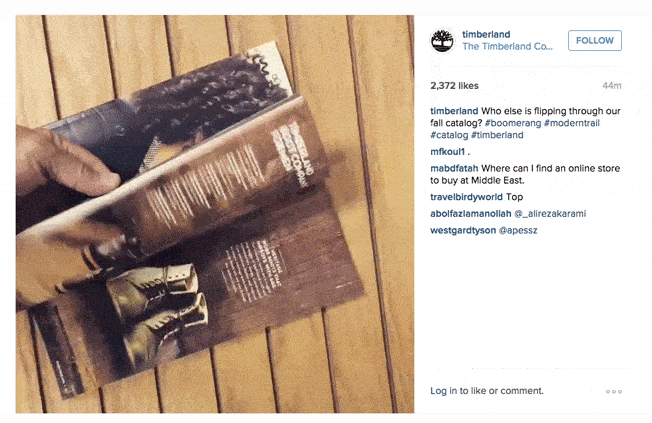
Timberland has seen great engagement rates with its innovative Boomerangs. Source: Adweek.
13. Use Instagram traffic to increase website traffic
Instagram traffic can help boost visits to your website with the platform allowing for a single clickable link in your bio.
Maximize the potential of your link with special offers and promotions to encourage followers to click through. You should also combine strong calls to action with your URL in a text overlay on any images or videos.
In Instagram stories, you can insert a link with a “Swipe Up” CTA if you have over 10k followers.
Don’t forget that all of Instagram’s ad formats offer a call-to-action button that followers can click on to take them to your website.
If you have partnered with an influence, work with them to promote your URL in their own content as well.
Finally, to ensure you can view relevant traffic stats, deploy analytics software to glean insights on which Instagram content is driving traffic to your website so you can target your campaign further.
14. Use SEO to ‘win’ Instagram
Instagram and SEO might not seem like the most obvious of bedfellows – but creating an SEO strategy for your Instagram account is vital on the increasingly competitive platform.
The two key areas that affect SEO are your account handle and account name. The first is the ‘@’ name that you register with, which should clearly reflect the sector in which your business operates. Make this short, sweet and memorable.
Then there’s your account name, which appears under your profile picture and should reflect your account handle and industry. When people search Instagram using words or emojis, it’s your account name that Instagram will check searches against.
Insert your industry or a keyword related to your business in the name field to get the most out of this feature. The key here is to think of words people would use when searching on Instagram.
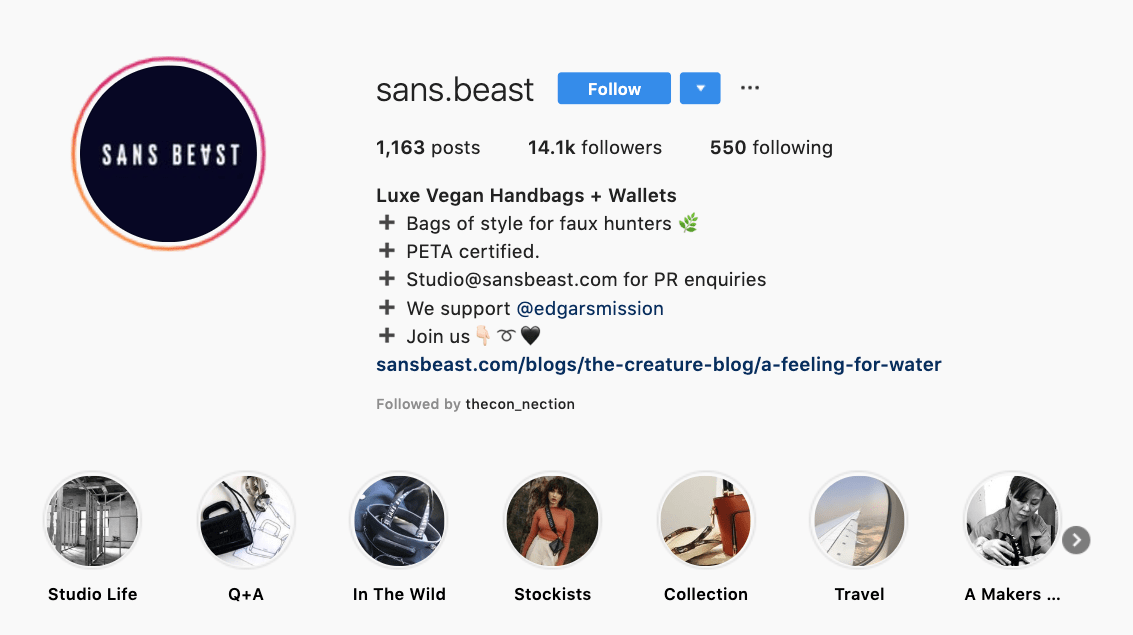
The keywords in the name field of sans.beast’s profile ensure their profile is discoverable to anyone searching for vegan handbags and wallets. | Source: Instagram/@sans.beast
For tips on how to create and optimize SEO-friendly handles and names that will increase Instagram engagement, head to our complete guide here.
The relationship between social and SEO goes both ways. Not only do you want to optimize your profile for searchers in your channel, but you also want to consider that social signals (such as likes, shares, and comments) may play a role in your SEO rankings.
While Google doesn’t officially confirm that social signals are a part of their ranking algorithm, studies have shown a significant correlation between social engagement and Google rankings.
15. Partner with micro-influencers to create brand authenticity
Instagram influencer marketing has become increasingly significant these days, allowing marketers to work with key thought leaders in their sector and push brand messaging out to a wider audience.
Because influencers are seen as ‘independent’, aligning your brand with their authoritative voice can add genuine authenticity to your messaging.
How to select the right influencer can be challenging though. Marketers can fall for the glamor of working with a celebrity instead of focusing on what the influencer can actually bring to the table.
It’s essential that marketers understand the definition of what is an influencer in the first place, planning out an influencer strategy that features a short trial campaign period to see how receptive the influencer’s network of followers is to your brand.
We all remember the backlash Pepsi faced trying to tap into social movements, like Black Lives Matter, with their campaign featuring Kendall Jenner. While the reach of a celebrity like Jenner is enormous, the campaign was not perceived as authentic.
Consumers today are becoming increasingly desensitized to traditional advertising, are incredibly aware of social issues and have finely-tuned BS-filters, making authenticity a major requirement for brands.
Instead of splurging on household names, partnering with micro-influencers can be your golden ticket to creating an authentic brand.
Micro-influencers are generally more affordable, have a more personal connection to their audiences, and they’re perceived as more authentic. In fact, micro-influencers consistently have higher engagement rates around 2-3%, compared to the average 1.7% of macro-influencers.
Sand Cloud is a perfect example of how micro-influencers can be used to build an authentic brand. The beach towel company uses micro-influencers and regular customers as brand ambassadors, sourcing nearly all of its content from its followers. The strategy has worked, as the brand 775k Instagram followers and boasts over $20 million in sales to date.
Remember to ensure your influencer is given the right tools, resources and guidance they need to carry out their role effectively and work hand-in-hand on the campaign with you as true partners.
For more details about how to successfully use micro-influencers to create an authentic brand, head here.
16. Host an Instagram contest
Contests are a powerful engagement tool on Instagram, generating 3.5 times more likes and 64 times more comments than regular posts.
Despite this, they’re regularly overlooked by brands, with only 2% of accounts hosting contests and a mere 0.6% of posts actually offering them in the first place. This means there’s a huge, relatively untapped resource for marketers to capitalize on.
An especially popular contest type on Instagram is the giveaway. This involves giving away a product or service, and users enter the contest by following your account, liking the post and tagging their friends in your post. If the giveaway is executed well, this can be a powerful tactic to boost engagement and brand awareness.
How to run an Instagram contest requires planning, from partnering with another brand to increase reach and identifying contest rules and goals – for instance, ‘enter to win’, ‘like to win’ or ‘follow to win’ – to the creation of the attention-grabbing contest post.
Once ready to deploy, strategize the contest’s promotion; along with Instagram ads, think email blasts, website banners, social network plugs and more.
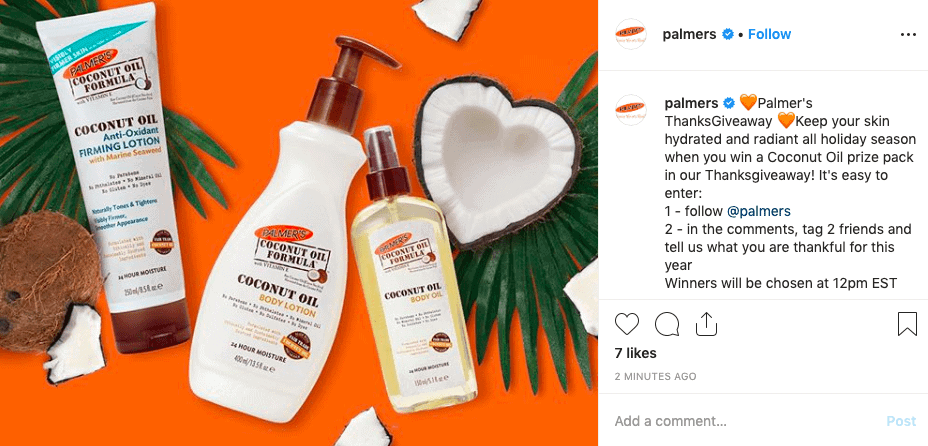
Source: Instagram/Palmers
Monitoring the contest when it is up and running is also essential. Use hashtags, Google Alerts and social media management platforms to track your contest’s performance. Once it’s over, promote the results on your social networks.
For inspiration, view these best Instagram contests that have driven brand engagement rates through the roof.
17. Convert Instagram followers into email subscribers
Email remains the de facto channel for building truly deep customer relations.
It’s why brands strive to convert Instagram followers into email subscribers via three established steps designed to create effective Instagram marketing for email.
First, create a clickable incentive in your Instagram posts depending on your target audience. For instance, consider offering a prize, free content, or a discount.
Second, once the audience clicks through, ensure the landing page features a strong call to action linked to an email submission form.
Third, create a mailing list to effectively wrangle your new email subscribers so you can begin to develop more meaningful relationships with them.
18. Embrace Instagram Stories
Instagram stories have become the most popular feature on the platform with 500 million users every day. There is even talk that stories are becoming the main feature of Instagram, even replacing the main feed.
It perhaps shouldn’t come as a surprise then that one-third of the most viewed Instagram stories actually come from businesses.
Stories enable you to post a mix of photos and images in a single post that disappears after 24 hours. But their benefits can last much longer for your reach and engagement rates, pushing up your chances of appearing in the Explore section and helping you gain new followers in the process.
Using stories can make your brand seem more authentic and approachable, and create a sense of urgency that keeps users coming back to engage with your brand.
Critically, followers are automatically notified of any new prerecorded or live stories. Live stories are ideal for drawing people in because they’re happening in the moment, while prerecorded stories are perfect for in-depth coverage of your products, one-time quick fire promotions, or sharing narratives.
Some of the best stories take advantage of the “FOMO” effect stories create by offering sneak peeks, or use interactive elements and clever storytelling to keep users watching.
Remember that 60% of Instagram stories are watched with sound on, so don’t forget to invest in a good sound experience for your audience.
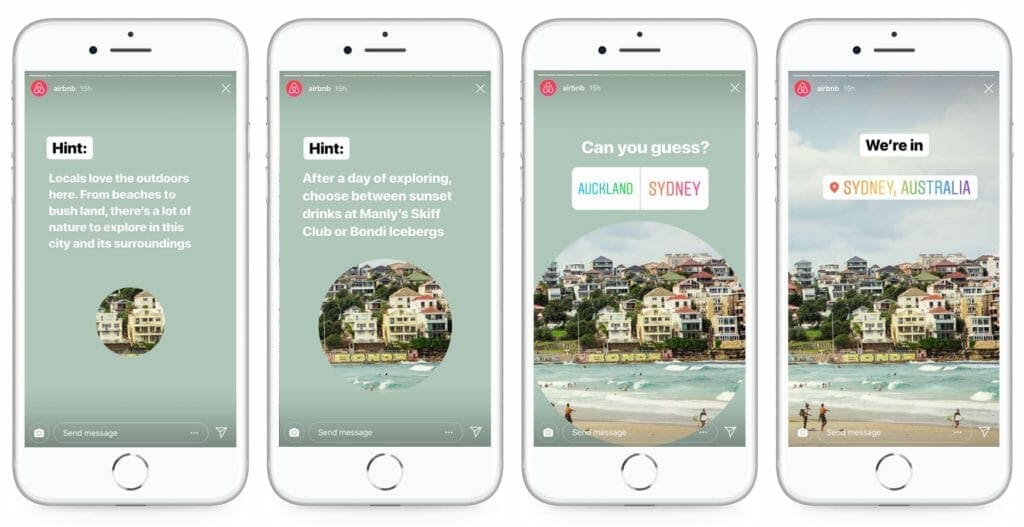
Airbnb is a master at making the most of Instagram stories. | Source: Instagram/Airbnb
For more examples of how to use Instagram Stories for marketing, head here for inspiration and ideas.
19. Add a link to Instagram Stories
Previously only available to verified Instagram account holders, you can now add a “See More” link to a story if you have a business account and 10,000 followers or more.
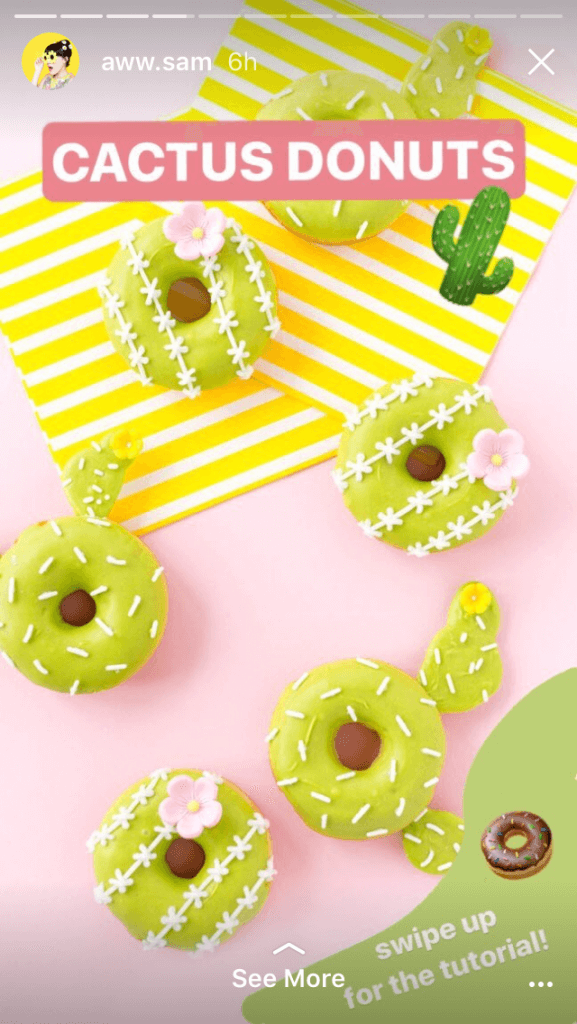
To open links in Instagram Stories, just swipe up from the bottom of the screen. Source: Instagram/aww.sam
To add a link, you’ll need to upload your photo or video to Instagram as before. Next, you tap the link icon at the top of the screen. Type in the link, do a quick preview to check all is well and hit ‘done’. Remember to add a CTA to your story, so that users know what they are swiping up for.
That might seem like a simple option, but it’s an essential one for driving even more Instagram traffic to your website.
(Don’t have 10k followers yet? Some social media management tools, like Falcon, let you have the swipe up feature even before that).
20. Use emojis effectively
The power of images over words extends to emojis—especially on Instagram. One study found that emojis are used by 92% of the online population.
With thousands of emojis available (and climbing), it is essential to create a strategy on how to use emojis that captures your brand without looking too informal.
Used right, emojis can help you insert personality and fun into your brand, and help build a more emotional connection to your audience. In fact, Millenials and Gen Z are so used to emojis that they see messages without them as more “cold”.
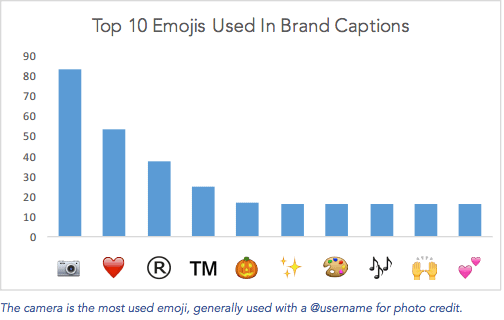
Source: Geekwire
First, consider if your brand should be deploying emojis at all – for instance, if you offer, say, a financial aid service, are they appropriate?
Second, check that you understand their meaning to ensure usage remains appropriate and judge how many should be used and how often to increase Instagram engagement.
Finally, remember emojis cut both ways, reflecting what followers think about your posts, so monitor comments for emojis to use as sentiment indicators.
21. Promote your Instagram channel on other social accounts
Spread the word about your Instagram channel as far as possible. For instance, promote your Instagram account on Facebook by making an announcement on FB with a clickable link to your Instagram page.
You can also exploit Instagram’s auto-post and cross-promotional tools. The cross-promotional tools allow you to instantly post from Instagram to Facebook, Twitter, Tumblr and more, bringing followers together from across your social networks.
Remember not to cross-promote all your Instagram posts to other social channels or you risk ‘cannibalizing’ your content, negating the need for followers to visit your Instagram channel in the first place.
22. Add CTAs, everywhere
Followers may love your Instagram ads, but be sure that all that love actually leads somewhere by using a powerful Instagram call to action.
While CTAs can be introduced into your profile, images or caption copy, the most direct way to increase interaction rates and push followers in a certain direction is to make use of the official CTA buttons that Instagram makes available to enterprise.
These appear below your post and are ideal for delivering short, punchy CTAs such as ‘Learn More’ and ‘Call Now’ that snare followers’ attention. For the best Instagram call to action examples and how to create them, head here.
23. Track and learn from your best-performing Instagram content
Learn the ‘formula’ of content that will drive up your Instagram engagement rates, using it to further hone your Instagram marketing strategy.
There are many ways to do so, whether through identifying the most effective hashtags and visual styles or through learning when the best times are to post.
Through such monitoring, you can develop best practices for your own brand. Also consider deploying a social media management platform like Falcon. Social listening and analytics will help you finetune your marketing strategy and increase Instagram engagement.

